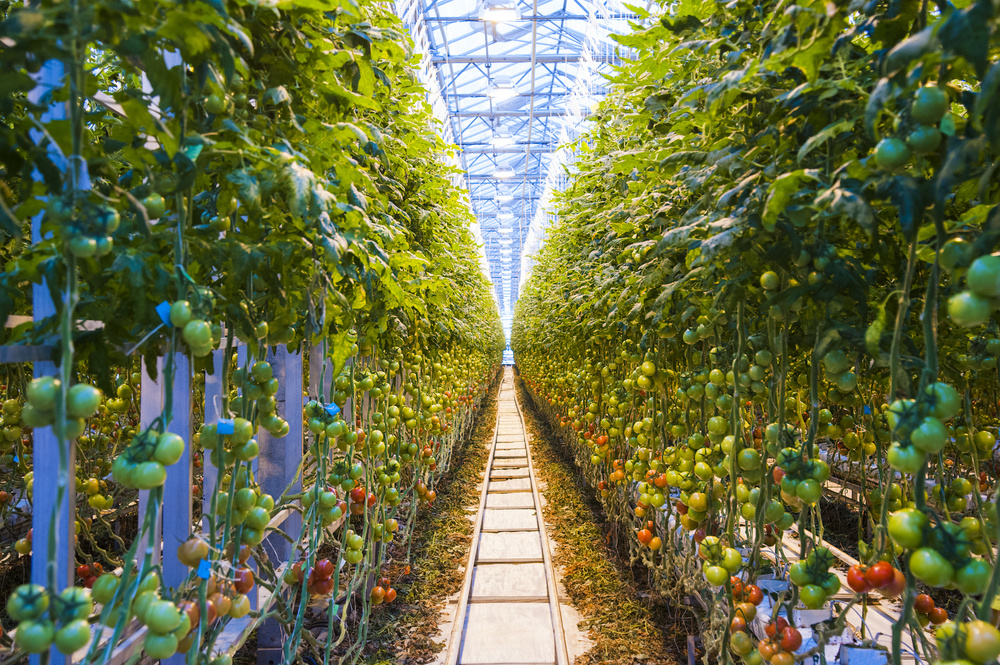Industrialization from the ground up: transforming rural spaces through agro-industry
November 19, 2022

We have three years left in Africa’s Third Industrial decade (2016-2025) that reaffirms the importance of inclusive and sustainable industrialisation. Evidence shows that the world’s wealthiest countries are also among the most industrialized. Yet, Africa remains the world's least industrialized region, with only one country on the entire continent, South Africa, currently categorized as industrialized. The continent has low shares in global trade and industrial output with the bulk of its exports made up of raw products and imports comprising of large amounts of higher-value finished goods.
On Africa Industrialization Day as the African Union meets in Niamey to deliberate on Industrialisation and Economic Diversification, it is useful to reflect on the challenges and opportunities to accelerate progress. Africa is home to 60 percent of the world’s arable land and many countries within the continent boast suitable agro-climatic conditions. This means that Africa has the potential to meet not only its own food needs, but also those of the rest of the world. However, despite huge agro-industry and agri-business potential in Africa, agricultural productivity is low and inefficient. Coupled with huge post-harvest losses whose levels are higher than the global average and growing demand mainly met by imports, it’s no wonder that food security remains a challenge on the continent.
By advancing actions to achieve Sustainable Development Goal 9, African countries can adopt sustainable industrialization, innovation and infrastructure to generate employment and income, promote new technologies, facilitate international trade and enable efficient use of resources. Specifically, agro-based industrialization can support the continent’s poverty reduction efforts by helping African countries grow jobs along the food value chain, raise incomes and close rural-urban inequality gaps, ensuring that ‘no one is left behind’ by 2030. Doing so calls for embracing advances in digitalisation, skills training, and infrastructure development to leapfrog the continent’s industrialization agenda.
Digitalisation - enable access to cutting edge and appropriate technology through partnership and South-to-South collaboration. By using digital technologies in manufacturing, African countries can create more productive jobs, boost manufacturing and leverage the African Continental Free Trade Area (AfCFTA) with its approximately 1.2 billion consumers. An excellent example is the One District One Factory model in Ghana that seeks to promote value-addition industrial activities in the country.
Skills for the future - modern farming and processing needs a skill (and mindset) revolution. Agro-ecological technologies in particular, are necessary for ensuring the agricultural growth remains eco-conscious and climate resilient. Increasing training and skill upgrading in organic farming and agro-forestry for smallholders, especially women and young people, on sustainable production and resource management is key. To this end, UNDP in Ghana has supported various projects across the country that promote organic farming, agroforestry and processing. For instance, through the ESP Project, more than 9,600 cocoa farmers have been incentivized to adopt sound farming practices that reduce climate change and improve environmental quality. Further, 3,000 women in the shea value chain have been provided with machinery and training to help them automate the hitherto labour-intensive processes.
Infrastructure development - invest in logistics to connect locations within countries and across Africa. At 15 percent, the level of intra-regional trade in agricultural products is lower in Africa than in other regions of the world. Bringing AfCFTA to life means connecting the unconnected and aggregating to lower unit costs. It also means reducing post-harvest losses and getting the right quality of products to the market by creating adequate post-harvest infrastructure and adopting suitable post-harvest technologies.
Conclusion
Time is running out. Today, more than ever, it is imperative that African countries reduce their dependence on export of raw commodities and import of finished goods. As noted by Brookings Institute, the successful implementation of AfCFTA could result in a doubling in size of Africa’s manufacturing sector, an increase of annual output to $1 trillion by 2025 and the creation of over 14 million jobs. These opportunities are already unfolding particularly in areas identified by UNDP’s Futures Report 2021 such as Automotives; Leather and Leather Products, Cocoa; Soya; Textiles and Apparel; Pharmaceuticals; Vaccine Manufacturing; Lithium - Ion Batteries; Mobile Financial Services; and Cultural and Creative Industries. It is important to continue to support industrialization, with strong linkages to domestic economies, to help African countries achieve high growth rates, diversify their economies, reduce food insecurity and reduce their exposure to external shocks.
Time is running out. Today, more than ever, it is imperative that African countries reduce their dependence on export of raw commodities and import of finished goods.Angela Lusigi

 Locations
Locations